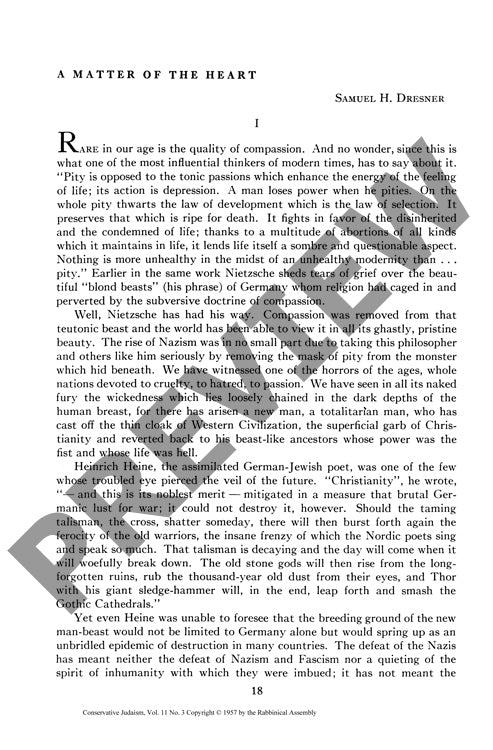A Matter of the Heart
Couldn't load pickup availability
When compassion withers, humanity's darkest impulses flourish - a pattern documented from the Warsaw Ghetto to modern humanitarian crises. Through philosophical and historical analysis, this research traces how Nietzsche's influential critique of pity as weakness helped lay the intellectual groundwork for totalitarian ideologies and systematic atrocities. Primary sources, including Shmuel Zygelboim's final letter during the Warsaw Ghetto uprising, reveal how global indifference enables mass atrocities to unfold. By combining textual analysis of philosophical works, historical documentation, and rabbinical commentary, the research establishes direct links between individual moral failures and collective humanitarian catastrophes. The study reveals that genuine compassion requires three elements: recognition of others' existence, understanding of their needs, and willingness to bear their burdens - principles anchored in the theological concept of humanity's shared divine origin. Drawing from Hasidic teachings and biblical interpretation, the analysis demonstrates how authentic love of one's neighbor demands acknowledging the fundamental spiritual unity among all people. The research concludes that learning to love mankind perfectly represents humanity's essential purpose, requiring ongoing spiritual development to overcome the natural tendencies toward selfishness and moral indifference that characterize contemporary society.

More Information
-
Physical Description
-
Publication Information
Published 1957
ISBN
-
Publication Credits
Samuel Dresner

